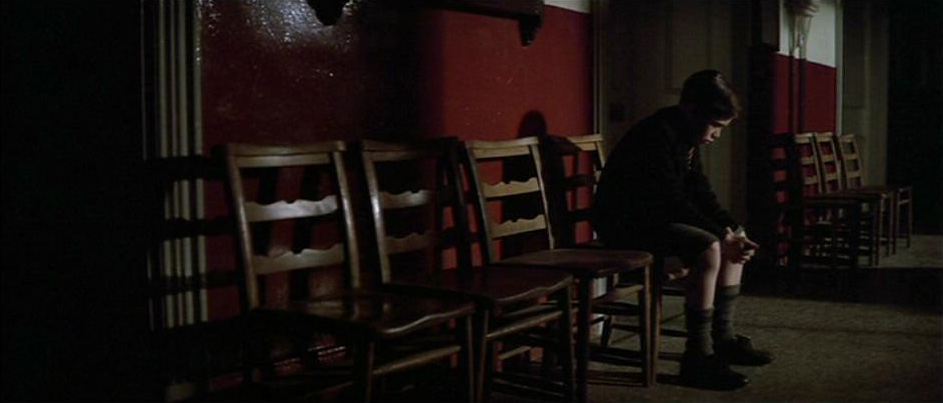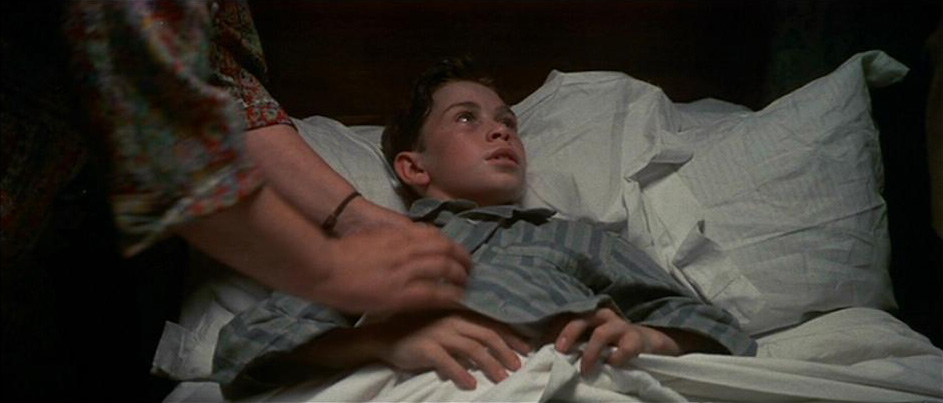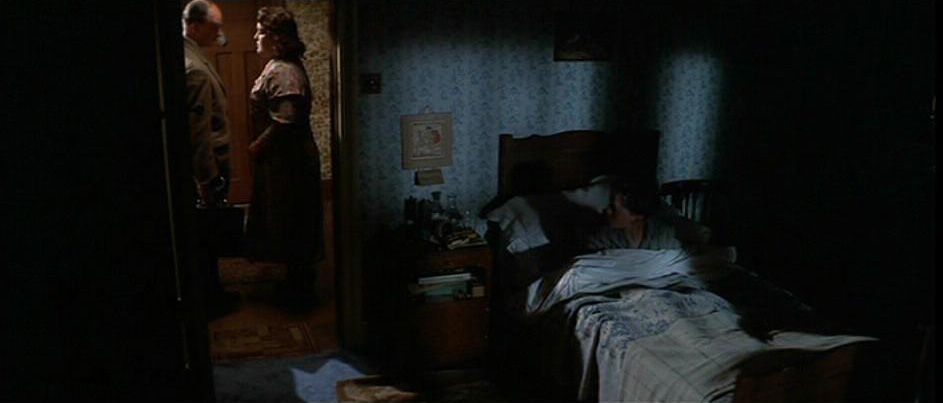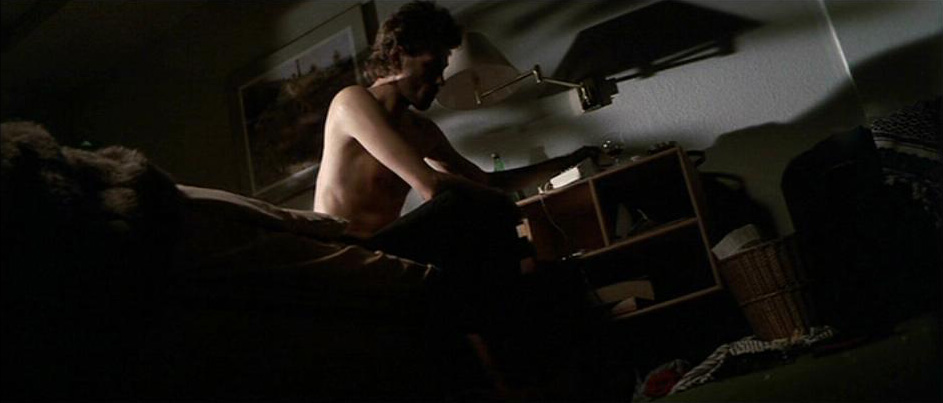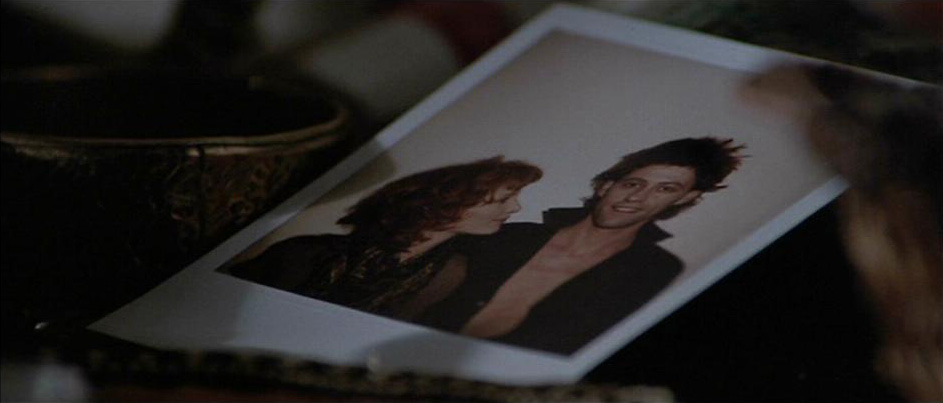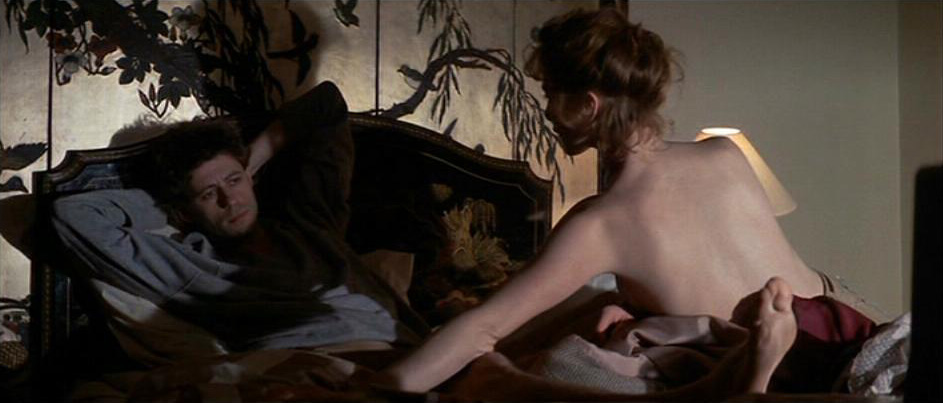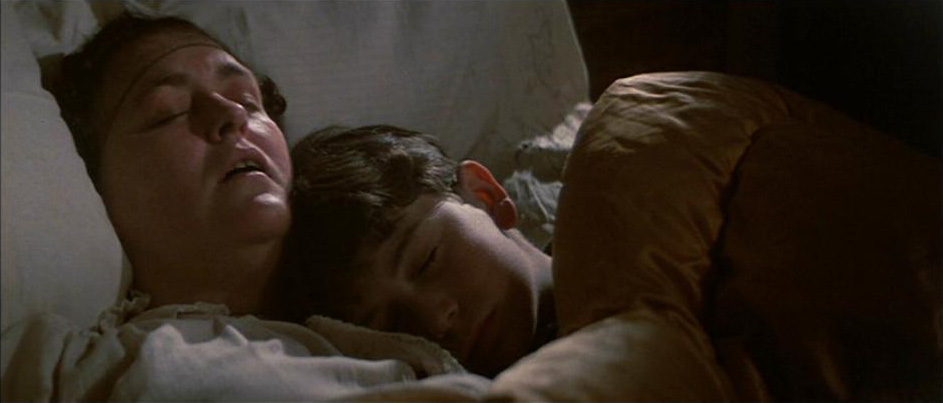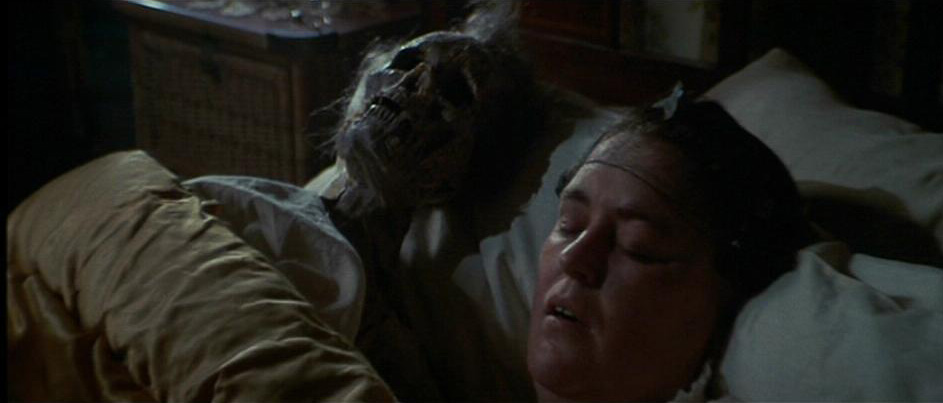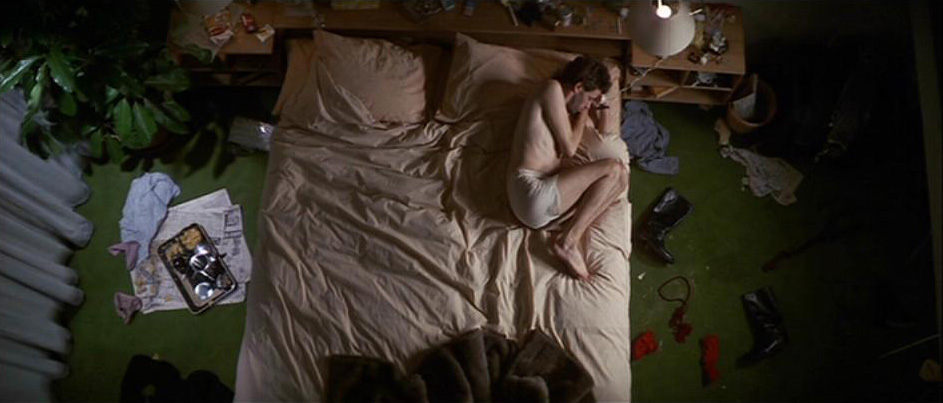Mother
[Roger Waters]Mother, do you think they'll drop the bomb?
Mother, do you think they'll like this song?
Mother, do you think they'll try to break my balls?
Ooooo. Mother, should I build the wall?
Mother, should I run for president?
Mother, should I trust the government?
Mother, will they put me in the firing line?
Oooooh aaah. Is it just a waste of time?
(alternate: Oooooh aaah. Mother am I really dying?)
[David Gilmour]
Hush now, baby. Baby, don't you cry.
Mamma's gonna make all your nightmares come true.
Mamma's gonna put all of her fears into you.
Mamma's gonna keep you right here under her wing.
She won't let you fly, but she might let you sing.
Mama's gonna keep baby cozy and warm.
Ooooh babe. Ooooh babe. Oooooh babe,
Of course mama's gonna help build a wall.
[Roger Waters]
Mother, do you think she's good enough -- for me?
Mother, do you think she's dangerous -- to me?
Mother, will she tear your little boy apart?
Ooooh aaah. Mother, will she break my heart?
[David Gilmour]
Hush now, baby. Baby, don't you cry.
Mama's gonna check out all your girlfriends for you.
Mama won't let anyone dirty get through.
Mama's gonna wait up until you get in.
Mama will always find out where you've been.
Mama's gonna keep baby healthy and clean.
Ooooh babe. Oooh babe. Oooh babe,
You'll always be baby to me.
[Roger Waters]
Mother, did it need to be so high?
Song In A Sentence:
As Pink grows more curious about the world and his own individuality, his mother inadvertently adds bricks to his wall through her over-protection and dogged need to keep him safe.
H ad Sigmund Freud lived 40 more years to the ripe old age of 123, he would have been delighted to hear such a wonderful example of his life’s psychoanlytic work embodied in the haunting lyrics of the greatest mother-centered protagonists in the history of rock music. Contrary to the eye-gouging antics of Oedipus or even the grandiose melodrama later in Floyd’s album, “Mother” is relatively low key. The music itself is interestingly split – though with few, if any, seams to show for it – between the gloomy and simple verse chords and the lilting nursery rhyme-like chorus. Coupled with these seemingly disjointed yet oddly congruent styles are a continually shifting time signature, the blistering guitar solo in the bridge, and unsettling lyrics overall, all of which culminate in a perfect example of Floydian schizophrenia.
The simple acoustic guitar chord progression and uncomplicated lyrical delivery of the first verses reflect Pink’s childhood innocence, an inquisitiveness some might say emulates those youthful stages when the world is one big mystery. The difference is that while the questioning phase of childhood development occurs around 3 or 4 years of age, Pink is most likely the same adolescent age he was in the previous two flashback songs. Psychoanalysts might argue that a roughly 13-year-old boy asking questions of his mother much like a 3-year-old implies an emotionally stunted Pink, though we’ll find later that the young boy’s inquiries are more barbed than they appear at face value. Questions of governmental trustworthiness (a theme first addressed in “When the Tigers Broke Free” by the movie’s chronology), self doubt, public ridicule and post-war paranoia riddle the teenager’s mind, and rightly so. Adolescence is generally thought of as an age of self-discovery, a time when one must adapt and reinvent himself or herself in light of new knowledge. By this reading, the song’s question (Pink) and answer (Mother) technique fits perfectly with this stage of budding awareness. The great Greek philosophers used similar question and answer methodology to illustrate and promote self realization, believing that such a dialogue form best encouraged mental progression. Leave it to the Wall, however, to introduce an ironic twist to such a classic philosophical technique; between Pink’s searching questions and his mother’s idiosyncratic, evasive nursery rhyme styled answers, what should be a lesson in self discovery quickly becomes one of self imprisonment.
Similar to the music, the lyrics are as subtle as they are unsettling. Although the song takes a seemingly straightforward form of question and answer, the psychological implications behind the lyrics are far from being uncolored. Right from the beginning Pink asks his mother about “the bomb,” instantly recalling all of the war imagery that has been laced through the album thus far. Despite the end of World War II in 1945, nuclear warfare loomed on the horizon of the collective Western conscious. The Cold War era was anything but a time of peace, and the threat of another full-fledged war was all but eventual. With these constant hostilities in mind, one might rightly assume that the “they” Pink worries about dropping the bomb could be any of the Allies’ foes with a post-war axed to grind, be they the unseated German powers, Soviet Russia, or the People’s Republic of China. Reading the lyrics in this light illustrates Pink’s burgeoning global awareness, certainly demonstrating a maturing persona. Yet a different perspective is cast when one takes into account that the “they” in the rest of the stanza oppose Pink specifically, and have little to nothing to do with ideas of nationalism. In the succeeding lines, Pink wonders if “they’ll like this song” or “try to break my balls,” metaphorically referring to emasculation through personal attack. In the context of these lines, Pink’s fears are less global and more personal, thereby redefining “the bomb” as a symbol of any kind of destructive power in his life, much like the bomb he aurally imagines killing his father at the end of “In the Flesh?” Accordingly, the “they” in that first line becomes as faceless and unrecognizable as the molded children in “Another Brick in the Wall, Part 2.” No longer is there a discernible enemy. They could be anything from a collective appellation for life in general to one’s closest friend. Like the song from Floyd’s Dark Side of the Moon album, them is something that isn’t us, that is opposed to us, a symbol of anything that can potentially hurt us. The war, Pink’s teacher, and Pink’s mother are all theys in his life. Because he realizes that this Other could be any situation, person, or thing, and that they could “drop the bomb” (i.e. cause destruction in his life) at any time, he is consumed with an overwhelming fear – or paranoia, rather – of the external world. Being that there is so much potential danger in the world, Pink asks his mother if he should “build a wall,” believing that the internal is the only place that’s safe from what he perceives to be a real and constant threat.
Yet despite his adolescent cynicism, Pink’s youthful hopes shine through, albeit momentarily, when he asks if he should “run for president.” To clear up a few misconceptions, it’s doubtful that this is a realistic dream of running for United States president, as many presume, considering that Pink is a British citizen. Rather, it’s more likely that the word “president,” is used to show that, despite his hardening views, Pink is still young and full of childlike dreams. All people dream of being great and important figures at some time or another, and Pink is no exception. Still, his momentary dreams of great political power are quashed when his overpowering apprehension takes over, wondering if he should even “trust the government” he’d theoretically be in charge of, or whether “they’ll put me in the firing line.” Once again, the they is unspecified and can refer to either the actual government or anyone who assails and criticizes those with power. As Pink realizes, power and greatness merely magnify a person’s vulnerability. When one is in the spotlight, he or she is that much more susceptible to public attack.
In his last verse before the mother’s chorus, Pink sings on the album “is it just a waste of time,” the “it” arguably referring to anything from life in general to his own suspicious questions. In the movie, Pink sings the alternate “am I really dying,” referencing the childhood sickness further recounted in “Comfortably Numb,” not to mention the cynical idea that life is nothing more than a gradual death. In the Wall’s concert incarnation, Waters sang “what a crazy time,” possibly alluding to the chaotic, post-war / postmodern world Pink grew up in as well as the often tumultuous phase of adolescence. Whichever line one chooses to focus on, each contributes a different yet cohesive view of Pink’s fragmenting and confused personality.
At this point Pink’s mother takes over the dialogue form. But rather than consoling her son with answers, Mother contributes to the tension of the song by first diminishing the seriousness of his personal search outright, singing “Hush, now, Baby. Baby, don’t you cry” (a sort of lyrical allusion to the “Hush, Little Baby” lullaby) before fueling her son’s budding paranoia with her own verses of fears, nightmares and control. However, considering that the album is told from Pink’s perspective – as mentioned in the analysis for “the Thin Ice” – we as the audience are never quite sure just how authentic the representations of other characters truly are. That his mother caused a brick in his mental wall, we can be sure; what we don’t know, however, is how accurate the voice he provides her with in songs like this one really is. Is the mother’s chorus a faithful representation of her actions when Pink was a child – not necessarily the exact words she would’ve said to Pink, but emblematic nonetheless of the exceedingly overprotective attitude she took in raising her son? Or is her chorus an unfair and exaggerrated representation, colored by the adult Pink’s embittered recollections? The complete absence of the first person “I” in her lyrics, replaced with a third person “Mamma’s” and “she,” lends itself to the lullaby-like melody, imitating the baby talk or parentese many parents use when talking to their infant children (giving further credence to the idea of an emotionally stunted Pink). Yet one might also say that by referring to his mother in the third person, even though the lyrics are presumably sung by her, Pink can’t help but inject himself into the chorus, all but announcing the conceit that this is how he interpreted her actions as a young man searching for autonomy.
In his 1979 interview with Tommy Vance, Waters commented that “if you can level one accusation at mothers it is that they tend to protect their children too much. Too much and for too long. That’s all.” Having lost her husband to the war, one can easily imagine through Pink’s lyrics a mother who is trying her absolute best to keep her only son “under her wing,” away from harm and the fate that took her husband. Unfortunately, according to Pink, such overprotection resulted in the inadvertent psychological projection of his mother’s nightmares and fears onto him. She couldn’t save her husband from death, but she will do her damndest to keep the only remaining extension that’s left of him – Pink himself – from that same fate. Yet as Waters suggests, such understandable maternal protection can turn stifling for a person searching for autonomy. “She won’t let you fly, but she might let you sing,” Pink sings in the guise of Mother, insinuating that he was allowed only fleeting moments of individuality and self expression. Instead of inspiring him to greatness, Pink’s mother tries to keep him “cozy and warm.” finally answering his earlier question (the only question from the first half that is specifically addressed) in offering to “help build the wall.” In Pink’s mind, by excessively trying to keep him safe, his mother only further isolated him from the rest of the world. In trying to eliminate harm, she harmed him most.
In response to the mother’s chorus, the ensuing guitar solo blazes into life out of nowhere, a musical representation of one of Pink’s few outbursts of individuality. But the reaching voice of the ascending arpeggios soon give way to descending notes on the scale, a personal freedom that is quickly hemmed in by Pink’s second round of paranoid musings. Unlike the questions of the song’s first half, the second half’s questions are much more accusatory, sarcastic even, implicating Pink is now older and wiser to the control his mother has exerted over his young life. “Mother, do you think she’s good enough for me?” he asks, the unspecified “they” of the first stanzas now an undefined “she.” Whether she is a girlfriend, his future wife, or women in general, one can’t be sure. But in the intervening time represented by the guitar solo, Pink’s mother has become one of the theys that he believes are out to do him harm. “Mother, do you think she’s dangerous to me?” he asks, mocking her maternal over-protection when he next wonders if Mother believes this unfit girl will “tear your little boy apart.” Despite his bravado, his asking if “she’ll break my heart” is tinged with a quiver of insecurity, as if he’s entertaining the very real possibility that in the end this girl will do just that.
While young Pink’s attitude between the first and second halves has changed, the mother’s imagined voice has not. She is further portrayed as unwaveringly protective, vowing to “check out all your girlfriends for you” and “not let anyone dirty get through.” In declaring that she’ll “wait up until you get in” and “always find out where you’ve been” her overprotective resolve to keep Pink “healthy and clean” is strengthened, portrayed even, some might say, much like a stalker obsessively hovering over his or her point of fixation. Concluding that “you’ll always be baby to me,” the mother is finally given a first person identity, but not before explaining the reason behind the sing-song rhythm of her choruses and the repeated “Hush now, baby. Baby, don’t you cry” preface. Even though he’s chomping at the bit to discover the world outside of his house, his town, and his country, Pink’s mother projects onto him eternal infancy where he’ll “always be baby to me.” Though he’s long since been Pink to his friends and himself, to his mother he’ll always be “Baby Blue,” thus explaining the somewhat tense, schizophrenic split between the somber verses and the lilting choruses – a tension created by Pink reaching for the sky and his mother pulling him back down again.
The song ends with Pink forlornly asking, “did it need to be so high?” Notice that Pink phrases the question in the past tense: “Did it” rather than “Does it” need to be so high, a marked shift from the present tense used in the rest of the song’s questions, suggesting that Pink has dropped the pretense of flashback momentarily, with his present self still placing some blame on his mother for, ostensibly, making “it” too high. Now, just what this “it” refers to depends on personal opinion. Some fans have posited that “it” is (or rather “they” are) the mother’s unrealistic expectations and restrictions placed on her son. Others view “it” as life in general, as it is in other songs on the album. By this perspective, Pink questions whether life really had to be so hard and whether simple happiness had to be so unattainable. But perhaps the most widely accepted reading has “it” referring to the wall itself, with Pink asking why the bricks his mother helped created had to be so daunting, so unavoidable, so insurmountable. As happens throughout the album, Pink plays the victim to a degree by shifting the blame of his bricks onto others…in this case, Mother, suggesting that it was her actions (and not his own defensive reactions to them) that made his wall so high. In essence, Pink is asking, “Mother, why did you do this to me?” The lack of sarcasm in his voice – something that characterized the complete second half of his verses – might imply a slightly more straightforward understanding of the line; rather than blaming his mother for everything, it could be that Pink shows some amount of understanding in her actions, and in a way is commiserating with her, rhetorically asking why a person’s metaphorical wall in general has to be so high in order to block out the hurt of life. Like so much of the Wall, even the briefest line can have a plethora of meaning, depending on the perspective in which the audience approaches it.
In the movie version of “Mother,” the simple, gloomy acoustic guitar is replaced with what sounds to be a xylophone picking the individual notes of the verse chords. The resulting childlike sound befits the nursery rhyme feel of the lyrics, emphasizing the emotional constraints Pink’s mother has placed on her son to keep him under her wing. Layered over the xylophone is a slow heartbeat much akin to that which begins and ends Dark Side of the Moon. Though unlike that earlier Floyd album where the beat introduced us to the themes of life and death and everything in between, here it creates a dichotomous feeling of comfort and claustrophobia, almost as if Pink’s back in the womb surrounded on all sides by the steady thump of his mother’s heartbeat. Similarly, in her final appearance in the movie, during “The Trial,” the mother is visually conveyed in very womb-like imagery – something that simultaneously conveys both the nurturing and confining maternal that he accuses her of throughout.
Before delving too deep into the movie’s portrayal of the mother, it should be noted that the song’s sequence does not actually begin with images of Mrs. Pinkerton, but rather of Pink’s wife. Transported momentarily to the present, we find a Polaroid photograph of Pink and his wife sitting on a bedside table beside a ringing telephone. On the other end of the line, Pink is trying to reach his wife from his hotel room, once again touching on that recurring theme of the unanswered phone call. It’s an important image for Waters, one which he uses to symbolize the breakdown of communication that can lead to bricks in one’s personal wall (Pink’s estranged marriage) as well as society’s wall (the death of Pink’s father, phone in hand, resulting from societal disconnect). Unable to reach his wife, Pink disconnects the phone, further severing his ties to his wife and the outside world. Hugging a pillow to himself, he retreats for a moment to the memory of his younger self resting in a similar position on his mother’s chest. Had Pink been a young toddler, the scene would be relatively unremarkable; yet there is a certain peculiarity at seeing an obviously adolescent boy lying on his mother’s bosom in such an infantile posture. Even before the song’s lyrics start, the framework of maternal over-protection and Pink’s emotional infancy is laid. In perfect Freudian fashion, musings about his mother trigger thoughts about his wife, and vice versa. Many psychoanalysts such as Sigmund Freud purported that most people form romantic relationships with people who remind them of their parents, whether similar in physical appearance or personal demeanor. Freud saw this phenomenon as an extension of the Oedipal / Electra complexes (depending on the person’s gender), theorizing that a child typically falls in love first with the parent of the opposite gender, and so as an adult, subconsciously seeks a spouse who reminds him or her of that parent. While it’s difficult to tell whether Pink’s wife and his mother share any of the same personal traits, considering that the movie sequence for “Mother” is the first time we’re introduced to the wife, it seems that the two are very much connected in his mind for one reason or another. (More on that point in a little bit.)
The following scene finds the young Pink sitting in the same white / red hallway as shown in “Happiest Days of Our Lives.” A punished child walks out of the headmaster’s office by which he sits, insinuating that it is now Pink’s turn to be chastised for some unknown offense (it could be he’s been writing more poetry in class). While seemingly out of place in the overall movie sequence, this shot is used to both fix the viewer to a certain time – roughly around the same time as “Happiest Days” / “Another Brick in the Wall, 2” – as well as link, by association, the school and its loaded color scheme with Pink’s thoughts of mother. In other words, just as the schoolmaster stifled Pink’s desire for personal expression and became “a brick in the wall,” we’re to understand right from the beginning that his mother will become a similar, repressive brick for much the same reasons. Case in point: the subsequent scenes alternate between young Pink watching a neighbor girl undress and adult Pink watching television as his wife undresses. [A side note on the wife: we mainly see her undressing through her shadow, something that will come up later in “Don’t Leave Me Now.” Additionally, the fact that she is largely viewed by her shadow implies that she is almost always outside of Pink’s periphery, hardly ever getting his full attention.] True to his adolescent nature, the young Pink gets thoroughly into the role of voyeur, turning off his bedroom light and smoking a cigarette as he watches his neighbor undress through a set of binoculars. Oddly, the adult Pink couldn’t care less that his wife seductively undresses before him, leaning around her bare-breasted form so that he can better see the television. The juxtaposition between the normal, budding sexuality of young Pink and the near sterility of his adult self is incredibly telling. As the scene plays on the viewer gets a glimpse at why the seemingly non-sexual adult Pink is possibly the way he is. Just as young Pink immerses himself into his voyeuristic stripshow, his mother opens the door to his room, prompting him to quickly put out the cigarette and feign studying. Reflected in a mirror, her face obscured from sight, the mother becomes a generalized, all-seeing force. Moreover, the way the camera looks down on Pink as he glances back shamefully further establishes the mother as ever watchful, almost godlike in her ability to swoop in an interrupt Pink from venturing too far into self discovery.
As mentioned above in the lyric analysis, Pink asks his mother if he’s “really dying,” set to accompanying shots of him lying in bed looking more worried than sick, with a doctor and his mother beside him. The doctor then points a finger at the mother – some have suggested accusingly, as if the doctor is blaming the mother for worrying Pink into illness – before the two walk into the hallway and close the bedroom door behind them. There are a number of interesting tidbits to the scene as a whole, all of which contribute to the feeling of mounting anxiety. Firstly, when the mother closes the door to Pink’s room, the room is thrown into a cold, blue light implicating Pink’s continual existence as “Baby Blue” in the her eyes. Corresponding to the lyric of nightmares and fears, fantastical shadows appear on the ceiling resembling the masks worn by the children in “Another Brick in the Wall 2.” Just as those certain teachers try to shape the children into model citizens through their constant criticism, the “nightmares” and “fears” of Pink’s mother mold Pink into a faceless copy of her own worrisome mind. Psychoanalytically speaking, the mother projects her personality onto her son and thereby forms him into what she desires, fears, or both. Some have suggested that because the mother worries so much for Pink’s health and well being, Pink unconsciously internalizes those fears and becomes sick. Others see this scene as part of the mother’s obsessive protection – the fact that Pink looks more scared than sick suggests to them that even if he were to develop a mild fever, it wouldn’t be unlike the mother to call the doctor in, worried that the fever would lead to something fatal. Still others point to the chorus and scenes from “Comfortably Numb” and purport that Pink is actually sick, and that it is the illness recounted in this later song and the thoughts of losing her only son that spur the mother in protective overdrive. The alternate “am I really dying?” takes on similar but varying meanings in light of the three different interpretations of the scene. As the vessel for his mother’s nightmarish projections, Pink could be parroting what is surely one of his mother’s greatest fears; or maybe, by the second scenario, his mother’s possible hypochondria has led him to believe that this mild fever is more critical than it really is; or who knows, if his illness is truly dire and has caused him to hallucinate much like he recalls in “Comfortably Numb,” maybe his mortality is a very valid concerning. Whatever theory one might take, the over-protection of Mother is equally emphasized in each.
Yet as the next scene shows, it’s not just the mom who contributes to this cycle of perpetual infancy / dependency; the young Pink sneaks into his mother’s room and climbs into bed with her, seeking her protection, very clearly of his own accord. This moment is juxtaposed with a shot of the adult Pink touching his sleeping wife’s shoulder, with the same blue light illuminating the scene, “further muddling up his mother with his girlfriend [wife]” in his mind (Scarfe, DVD commentary). Like the mother who hardly wakes when her son climbs into her bed, the wife simply rolls over in her sleep, both literally and figuratively turning away from Pink. It would seem that Pink is doomed to only reach out to those he loves when they are otherwise indisposed; or perhaps, like the narrator in “The Hero’s Return” from Pink Floyd’s followup album The Final Cut, Pink is so emotionally guarded that he can only open up to someone when they are unable to turn his feelings back against him. In a lyrical mirroring of this scene, the narrator of “The Hero’s Return” – presumably a veteran of World War II – sings, “Sweet heart, sweet heart, are you fast asleep? Good. Cause that’s the only time when I can really speak to you. There is something that I’ve locked away. A memory that is too painful to withstand the light of day.” Despite the somewhat erronous argument that the Final Cut is a sequel to the Wall (it’s more a thematic sequel than a narrative one), we can certainly glean Pink’s emotional mindset from the similar actions of the veteran: Both characters simply cannot communicate for fear of revealing too much of their inner selves, and are only able to open up when their companions are asleep and unable to criticize them.
The guitar solo – thankfully not transposed to the xylophone – leads off with another movie image rife with meaning. After hurtling down the stairs in the middle of the night, young Pink throws open his mother’s bedroom door to find a decaying corpse laying beside her. Though this vision might speak to the hallucinations that the arguably sick Pink later recalls having, the image speaks just as much about Pink’s mother as it does him. Visually signifying her inability to move beyond her husband’s death, we undesrtand to some extent the reason why she shelters Pink to the overbearing degree that she does. Remembering that the guitar solo on the album served as a sort of outburst of individuality, Pink’s discovery of the skeleton – laying in a similar position as he was earlier – might also correspond to his realization of the damaging effects of his mother’s overprotection, thereby accounting for his change in tone between his first and last verses. He finally comprehends the slow decay of personal autonomy under the ever-watchful eye of Mother, and so lashes out by throwing himself at the girls his mother might deem “dirty” and “dangerous.” This idea of Pink moving beyond his Mother’s grasp is emphasized with the flashforward to Pink’s wedding, though ironically what should be a joyous occasion smacks of emotionless ceremony. Even the newlyweds’ kiss at the alter is more perfunctory than romantic. Freudian psychoanalysts would probably argue that Pink is further entrenching himself in the idea of maternal protection by marrying someone whom he believes to be like his mother, though it’s still difficult to say whether the two dominant women in his life have much in common. From all indications, the wife’s personality is markedly different. After the guitar solo fades, Pink’s wife tries to get his attention at the piano, appearing to all intents and purposes to be loving, jovial, and most of all hurt by Pink’s drug-induced daze. The composition and action of these scenes involving the wife differ greatly from those centered around Mother. Whereas the mother is typically portrayed as hovering, all-seeing, the wife is depicted time and again as lovingly concerned with her husband. Perhaps therein lies the disconnection. As the second verse implies, Pink tries to find a girlfriend / wife who is nothing like his mother, who is the antithesis of everything that his mother wanted him to have. However, such a revolt backfires with a hollow marriage based more on Pink’s spite than actual love. Without the watchful eye of his mother or a mother-like wife keeping him in line, Pink throws himself head first into the sex, drugs, and rock and roll lifestyle of his fame while (debatably) unconsciously longing for the maternal protection and affection that he has forsaken.
Like the shot outside of the headmaster’s office, the subsequent scene of Pink in the ballroom dancing class seems a touch out of place at first glance. According to Waters’ DVD commentary, the sequence was inspired by a true childhood event in which his mother – not nearly as overprotective as Pink’s, he adds – made him attend ballroom dancing lessons in knee-high pants against this wishes, humiliating him to a certain degree. That humiliation lives on in a slightly exaggerated form as the reluctant Pink asks a girl to dance, and then is dwarfed by her on the dance floor in a literal representation of how Pink comes to view girls, the maternal, and imposing femininity in general.
After this brief digression into the past, the arc returns to the relative-present in which Pink, again unable to contact his wife by phone, curls into the fetal position on his bed, underlining the notion of his emotional infancy laid out in the rest of the song. The viewer finally, but not surprisingly, gets to see why Pink is unable to contact his wife as the final line is sung. Referencing his growing wall, we see the creation of yet another brick: the wife’s infidelity. Similar to the earlier shot in which the mother’s head is obscured, making her less personal and more of a universal force, the final shot merely shows the tangled legs of the two lovers – the wife and the leader of a war protest group – their faces unseen but their actions felt across an ocean’s length of telephone line. With the song over, Pink continues to reach out to his wife, but is surprised when the lover’s voice answers the phone instead. In a shot paralleling his own father’s death during “In the Flesh?”, Pink’s hand slips from the phone receiver as he slides down a brick wall in a daze. In these instances, life has dealt both the father and Pink unexpected blows. While the father physically dies while calling for reinforcements, Pink’s metaphorical death is merely accelerated with this latest “bombshell.”
[A bit of trivia about the phone call heard at this point in the movie, the same as the one after “Young Lust” on the album. Though Waters refutes the story to some extent now, saying on the DVD commentary that it simply never happened or he just doesn’t remember doing it, Floyd lore has always held that the recorded phone call was real, and was made on stage in the middle of a concert. Supposedly the person who answered on the other end of the line was in on the gag, but the unsuspecting operator simply thought that this was a real call and so tried her best to patch Waters through to his “wife,” only to have “another man answering.” In his interview with Tommy Vance in 1979, Waters commented: “I think [“Young Lust”] is great; I love that operator on it, I think she’s wonderful. She didn’t know what was happening at all, the way she picks up on…I mean it’s been edited a bit, but the way she picks up, all that stuff about ‘is there supposed to be someone else there beside your wife’ you know I think is amazing. She really clicked into it straight away. She’s terrific!”]
What Other Floydians Have Said
"I noticed on re-listening to this great album (which your excellent guide helped me to recongise the many nuances in) that Pink (most noticeably in 'Mother,' for obvious reasons) only ever refers to his mother as Mother, never as Mum (or Mom, as you Yanks would have it), whereas she always refers to herself as Momma, or Mama (eg. "Of course Momma's gonna help build 'the wall'; or in 'The Trial' - 'Come to Mama, Baby, let me hold you in my arms...'). However, Pink only refers to his father as Daddy (In 'Tigers,' - "And that's how the High Command / Took my Daddy from me," as well as the whole of 'Brick, part 1'). Although, of course, in 'The Show Must Go On' he has 'Ma' and 'Pa', this seems to be so that Roger could get them into one syllable." - Chris Bhamra
Webmaster's Addendum: This is a perfect representation of the friction that exists between Pink and his mother. While she is constantly trying to baby him, he is just as consistently trying put distance between himself and her. It's even more interesting that he calls his father "daddy" throughout (a much more personal, intimate appellation), especially considering he'd never met the man! I suppose it's just another telling nuance about Pink, that he relates more to the people who aren't there for him rather than the ones who are.
"In the 'dissertation' of Mother you mention that Pink looks more worried than sick and the Doctor looks at Mother 'perhaps accusingly'- I would take that one step further. We all know that Mother is overprotective - perhaps the most serious manifestation of parental overprotectiveness is Munchausen by Proxy Syndrome. The Doctor's glare and subsequent spiriting of Mother from Pink's 'sick' room insinuate this is not the first time the Doctor has been called for a frivolous reason. This interpretation ignores the references to being sick as a child during 'Comfortably Numb' - I would mischeviously respond that even victims of Munchausen by Proxy Syndrome get genuinely sick from time to time. It is possible that the 'sick' scene in 'Mother' is entirely unrelated to the sickness referred to in Comfortably Numb but is included to highlight just hom overprotective Pink's Mother is." - Shane McNee
"Arturo Mendez commented about the use of the phrase 'your exquisite wife and mother' during 'The Trial', and how it suggests that Pink relied on his wife to be also a mother to him. I agree, but I think that it also works the other way - that is, Pink's mother was also, partially, his wife. However, this connection was not so much a desire of Pink's as an extension of the mother's overprotection. In other words, Pink's mother was so against the idea of his leaving her protection to spend his life with another woman (well, theoretically spend his life, since the wife left him) that she wanted to be his substitute wife so that he wouldn't have to leave her. This is quite the opposite of Pink's reliance on his wife to also be a mother - that is to say, in one case Pink wanted the woman to be something that she was not willing to be, and in the other case the woman wanted to be something that Pink didn't want her to be." - Dominick Lawton
Webmaster's Addendum: I always found it a bit creepy, the scene where Pink is cradled up in his mother's bed. I know young children often slip into their parents room to sleep when they are sick, or have a nightmare, or are simply scared, but there's something about the way that scene is shot in particular that casts it in a strange light. It could be a result of the earlier scene in which Pink dresses up in his father's uniform. On the surface, the scene seeks to parallel Pink with his father...the war that killed the father ruins Pink's emotional life. But underneath the surface, one can't help but wonder if the scene is not only paralleling the two chracters, but using them interchangably. Pink dresses as his father because Pink IS his father...or at least in the mother's eyes. She sees him as the remaining embodiment of her husband...Pink is all she has left of the husband, so in a sense, Pink becomes both husband/father in her eyes (there are all sorts of Oedipal connotations to this). And because he must act as husband to his mother, because he must grow up before his time, Pink never really has a childhood...becoming that "fleeting glimpse" he remembers in 'Comfortably Numb.'
"I just rediscovered The Wall DVD and noticed something very strange: In the 'Mother' sequence, when his wife sees him stoned, notice the 3 paintings on the right wall: They're 'Andy Warhols' of Bob Geldof, the actor who plays Pink. This might symbolize something about Pink's nature and those 'other voices' in the song 'Is There Anybody Out There?'" - Nick
Author's Addendum: In a way, the Wall is a Warhol-like representation of Pink, showing the same subject in various (metaphorically) inverted and often contrasting colors, all of which add their own layer and complexities to the overall visceral work.



